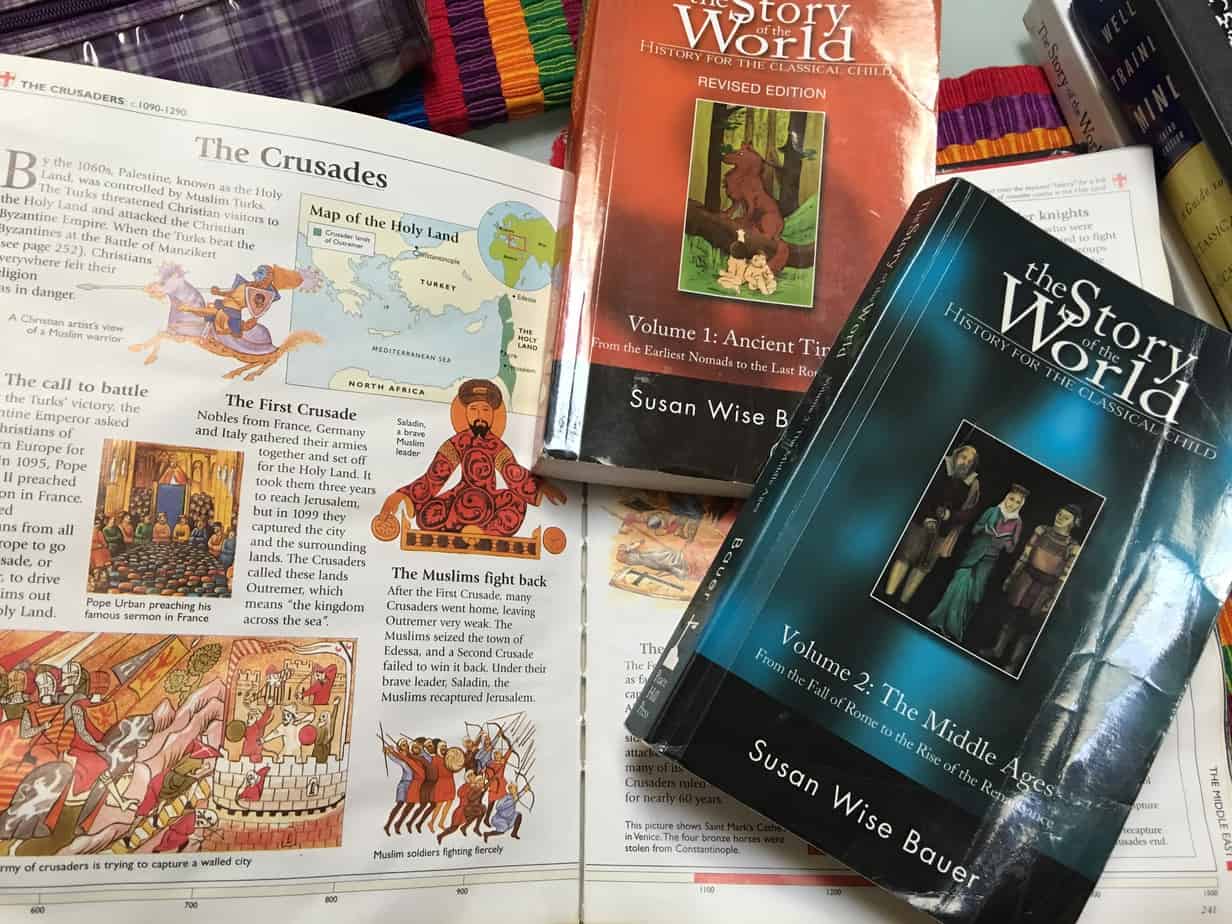Learning About the Middle Ages with Story of the World
This summer, 10-year-old Kate and I started learning about the Middle Ages. We use the classical education method for homeschooling which employs the trivium.

This summer, 10-year-old Kate and I started learning about the Middle Ages. We use the classical education method for homeschooling which employs the trivium.
We are reading Story of the World Volume 2: The Middle Ages. We’re also using the Story of the World Activity Book and the Usborne Encyclopedia of World History.
How the Trivium Works
The trivium for primary school is taught in 3 stages: grammar, logic, and rhetoric.
Grammar Stage: Grades 1-4
Logic Stage: Grades 5-8
Rhetoric Stage: 9-12
To put it simply, in the grammar stage, you learn the WHO, WHAT and WHERE, in the logic stage, you learn the WHY, and in the rhetoric stage, you learn the HOW.
Another way to explain it is in the grammar stage you observe, in the rhetoric stage you analyze and ask questions and come up with theories, and in the rhetoric stage you compose and defend arguments.
How History is Taught in Classical Education
For the 12 years of school, you cover 4 cycles of history. These cycles are:
1. Ancient History (Story of the World Volume 1)
2. Middle Ages (Story of the World Volume 2)
3. Renaissance (Story of the World Volume 3)
4. Modern Times (Story of the World Volume 4)
You cover each cycle 3 times (one cycle during each phase of the trivium).

Here’s how it maps out:
Grammar Stage: Grades 1-4
Grade 1: Ancient History
Grade 2: Middle Ages
Grade 3: Renaissance
Grade 4: Modern Times
Logic Stage: Grades 5-8
Grade 5: Ancient History
Grade 6: Middle Ages
Grade 7: Renaissance
Grade 8: Modern Times
Rhetoric Stage: 9-12
Grade 9: Ancient History
Grade 10: Middle Ages
Grade 11: Renaissance
Grade 12: Modern Times
The idea is you read the Story of the World books during the grammar stage, then you read supporting materials (books for kids about those periods) during the logic stage, and then you read the original texts in the rhetoric stage.
Actually, I think a lot of people have their kids read the original sources during the logic stage… so yeah, that means fifth graders are reading Plato and sixth graders are reading the Shakespeare plays.
Catching Up
Needless to stay, we are not on schedule. Kate didn’t even start homeschooling until 3rd grade. She spent 1st and 2nd grade in Montessori, until one day when she begged me to bring her home. She was bored out of her mind. “Mother, I beg of you, please don’t make me go back there.”
It was a busy year with me restarting my blog last August. So, we are behind.
My plan was to finish the Middle Ages this summer and then spend the fall on the Renaissance, next spring on Modern Times, and next summer on Ancient Times.
But then we just decided to start Classical Conversations this September… which I am very excited about. I’m not really sure how the next year will play out.
I’ll be posting more about our homeschooling adventures… stay tuned…



Comments ()